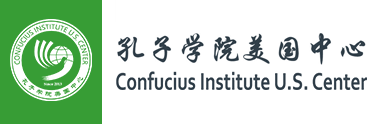Newly-Formed Athenai Institute College Group Takes Aim at a Chinese Language and Cultural Program
Pledges to shut down other students’ choice of classes and costing them educational opportunities.
“Students attacking a program for fellow students because of their frustrations with a foreign government is misguided, misdirected and misinformed,” said Erik Eging of The Confucius Institute U.S. Center. “A recent GAO report debunks many of the Athenai Institute’s complaints about university-run Confucius Institute programs, if only they had taken the time to read it.”
WASHINGTON D.C. (06-11-2020) The Confucius Institute U. S. Center (CIUS Center) called a recent open letter from the newly formed Athenai Institute (Action to Halt the Expansion of Neo-Authoritarian Influence) “a sadly misguided way of dealing with frustrations that unfairly attacks fellow students and local teachers. American students and educators of language and culture do not deserve to be targeted by those who wish to address the actions of another country. This represents a weaponization of education, in which opportunities for connection and understanding are lost because of the incorrect assumptions by a vocal minority of activists,” said the CIUS Center’s Executive Director Gao Qing.
Formed in May 2020, the Athenai Institute plans to target locally run Confucius Institute (CI) programs across US college and university campuses, to end language and cultural exchanges as their way of expressing displeasure with the government of China. In a letter that names a number of grievances the students have with that nation, some student organizations joined together demanding that CI programs enjoyed by other students be kicked off campuses.
“Depriving fellow students of language skills in our global economy is shortsighted and will cost people opportunities in the future,” noted Erik Eging, Communication Associate at the CIUS Center, a graduate of George Mason University with a bachelor’s degree in Chinese. “They justify their campaign by mischaracterizing how the CI programs actually function, as our own government recently confirmed.”
In a sleeper report that detailed the CI program’s independence, a nonpartisan GAO (Governmental Accountability Office) report issued in February 2019 examined Confucius Institute agreements and operations after more than a year of study, submitting their findings to the U.S. House and Senate for consideration. The Athenai Institute inaccurately portrays Confucius Institute programs on a number of issues directly addressed in the GAO report, including facts such as:
- How CI programs are established at the request of colleges and universities, which have full control of hiring, firing and curriculum.
- How CI programs are able to address the issues of their choice and have hosted speakers and programming that addresses controversial issues that they elect to discuss.
- How CI programs choose their own textbooks and materials.
“The Athenai Institute’s efforts highlight the unfortunate consequences of engaging with others without first taking time to understand their intentions and perspectives. This is especially true when engaging with people of other races and cultures,” said Cheyenne Boyce, Director of Program Development at the CIUS Center and active Alumnus of the Fulbright English teaching assistant program.
“The CI programs offer many traditionally underrepresented students in global education the life-changing opportunity of experiencing educational and cultural exchanges, both in the U.S. and overseas. Confucius Institutes offer demand-driven programming that appeals directly to their local communities ensuring that the educational content is serving student’s needs, making the program very unique. At the CIUS Center for example, through focusing on people-to-people exchanges, we encourage individuals to think beyond the frameworks of government and connect with individuals directly. The CI program equips students with the language and cross-cultural competencies needed to communicate and solve problems through mutual understanding and respect. As I observe our world today, the need for such skills has never been clearer.”
CIUS welcomes your questions on our educational work. We do not endorse or oppose any legislation or lobby on any issues before government.
To learn more about the GAO report, click here. To learn more about the Confucius Institute and how the programs operate, visit www.ciuscenter.org.
MEDIA ALERT: To set up an interview or for more information, contact the CIUS Center at press@ciuscenter.org


